In the eighth and ninth chapters of Paul’s second letter to the Corinthians there is a plea for generosity. For some time Paul had planned to take up a collection of funds among the Gentiles to give to the Christians in Jerusalem during their time of need. Paul saw in the Church the ability for those who had been blessed with wealth to share with those brothers and sisters in Christ who had not. In many of Paul’s letters you see hints and references to this massive undertaking he planned, but none as clear as 2 Corinthians 8-9, in which Paul directly and boldly asks, demands, expects, and shames the Corinthians into donating to the Christians in Jerusalem. For example:
7 Be the best in this work of grace in the same way that you are the best in everything, such as faith, speech, knowledge, total commitment, and the love we inspired in you. 8 I’m not giving an order, but by mentioning the commitment of others, I’m trying to prove the authenticity of your love also. 9 You know the grace of our Lord Jesus Christ. Although he was rich, he became poor for our sakes, so that you could become rich through his poverty. 10 I’m giving you my opinion about this. It’s to your advantage to do this, since you not only started to do it last year but you wanted to do it too. 11 Now finish the job as well so that you finish it with as much enthusiasm as you started, given what you can afford. 12 A gift is appreciated because of what a person can afford, not because of what that person can’t afford, if it’s apparent that it’s done willingly. 13 It isn’t that we want others to have financial ease and you financial difficulties, but it’s a matter of equality. 14 At the present moment, your surplus can fill their deficit so that in the future their surplus can fill your deficit. In this way there is equality. 15 As it is written, “The one who gathered more didn’t have too much, and the one who gathered less didn’t have too little.”
Truth be told, Paul’s idea is rather simple: those who have more than they need should provide for those who have less than they need. Yet there are many enemies that stand in the way of such generous living. Greed reminds us of the things we could do with our extra and of the desires we have that remain unfulfilled, and with time Greed encourages us to keep our extra for ourselves. Gluttony nags us with its insatiable hunger for more – more rooms in our house, more cars in our garage, more money in our accounts, more travel in our calendar, more shows on our DVR, more of everything. Gluttony stokes a fire within us that demands to be fed with more until we decide we need to keep our extras for ourselves. Fear haunts us with possibilities of disaster, hospital stays, unexpected bills, college funds, and retirement savings until we decide to keep our extras for ourselves, just in case. So we look at our neighbor in need and Greed, Gluttony, and Fear turn our attention back on ourselves so that we pity ourselves more than our neighbor. Eventually we even convince ourselves that we are worse off than they. Just like that, Paul’s simple idea is foiled.
But don’t forget about the manna. Don’t forget that way back when Israel was wandering in the desert for forty years they ate manna – bread that daily fell from the heavens. In those days, God provided miraculous bread for the Israelites, and each day they were to collect just enough food for their own household; no one was to collect more than they needed. Every day in the desert, everyone was able to eat exactly the right amount of manna, and those who collected too much would wake up to find their leftovers spoiled, and those who collected too little would always find they had enough. Why do I mention manna? Because Paul did in verse 15, “As it is written, ‘The one who gathered more didn’t have too much, and the one who gathered less didn’t have too little.'” Paul chose to remind the Corinthians about manna while he was requesting their generosity to remind them that God – the source of all we possess, even our excess – is ultimately in control of our possessions, not us. Just like the manna, our possessions and wealth are gifts from God, and if we have more than we need while others have less than they need then we have abused our blessings. If we hold onto our extras, clinging to them desperately, we will find that with the help of Greed, Gluttony, and Fear our extras will rot our hearts like those who tried to hoard more manna than they needed. And if you are afraid that if you dare to become generous that you might become overly-generous and not have enough leftover for yourself, remember that God did not let anyone starve in the desert. Everyone always had what they needed.
So perhaps you are in a comfortable place right now, with extras to spare. Do not let Greed, Gluttony, and Fear rot your extras and poison you while others live in need. Remember the generosity of Jesus, who gave up everything, even his life, for we who were in need of a savior. Or perhaps you find yourself coming up short and unable to meet your needs, and if so, remember that no Israelite starved in the desert because God provides all that we need.
